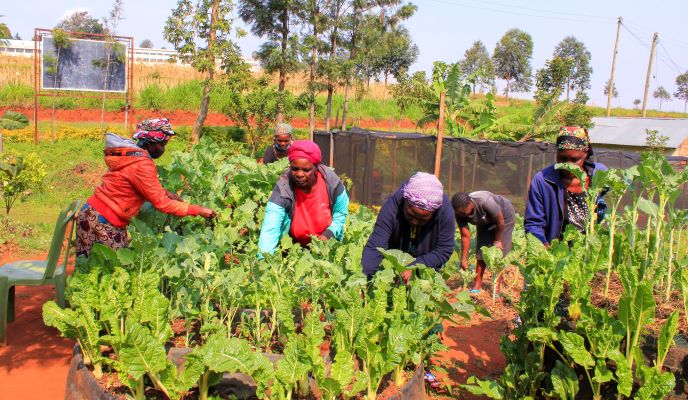
The United Nations’ Food and Agriculture Organisation (FAO) has injected $650,000 as a grant in an agreement signed with the World Vegetable Centre (WVC) Eastern and Southern Africa to boost organic vegetable production and research in Tanzania.
According to the agreement, the grant will be used to support the WVC country centre which is headquartered in Arusha District Council.
Dr. Kent Nnadozie, FAO International Treaty on Plant Genetic Resources for Food and Agriculture (ITPGRA) Secretary said the funds will improve organic vegetable seed production and germplasm bank.
“This money is poised to enhance and revitalize Tanzania’s vegetable agriculture sector, with the potential to catalyze economic transformations across Africa, particularly benefiting small-scale farmers,” said Nnadozie.
Currently, WVC holds approximately 7,000 vegetable varieties in its repository, whereas globally, there are about 1 million varieties of vegetables.
“It is imperative for the WVC to utilize the grant effectively to enhance and amplify vegetable agriculture production, while also expanding the diversity of varieties within the center,” added the secretary.
According to him, more vegetable species need to be produced because the current production cannot afford the needs of African market.
Dr. Gabriel Rugalema, WVC Managing Director said they intend to utilize the grant to address the current challenges confronting the center, aiming to attain their objectives.
“Currently, we have 7,000 vegetable species. Our immediate goal is to expand this number to 15,000 by next year, with a long-term aim of reaching 40,000 species by 2030,” said Rugalema adding that the support will boost their efforts in in improving agriculture sector especially vegetable farming.
“Tanzanians should anticipate high-quality vegetable species from the center. I encourage them to seize this opportunity by visiting and utilizing the facility to bolster our agricultural economy, beginning at the individual level and extending to the nation as a whole.”
Established in 1992 in Arusha, the WVC has evolved into a comprehensive institution. Presently, it boasts a team of professional researchers and developers spread across Africa, focusing on crucial vegetable crops such as tomato, pepper, onion, and cabbage, in addition to a variety of traditional African vegetables.
Collaborating with over 40 national institutions and numerous international organizations, the center has expanded its reach.
Operating from three regional bases in Africa, it serves Eastern and Southern Africa from Tanzania, West and Central Africa’s Dry Regions from Mali (established in 2014), and West and Central Africa’s Coastal and Humid Regions from Benin (established in 2017).
Furthermore, a liaison office in Cameroon extends the center’s influence into sub-Saharan Africa, disseminating improved vegetable varieties and production technologies.








